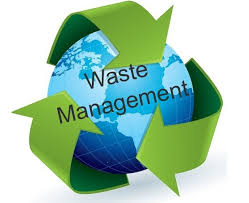ABOUT SCHEDULE WASTE MANAGEMENT
Waste Management or (waste disposal) are the activities and actions required to manage waste from its inception to its final disposal. This includes the collection, transport, recycle and disposal of waste, together with monitoring and regulation of the waste management process.
Moreover, waste management can be included in solid, liquid, or gaseous: Each type has different methods of disposal and management. Waste management deals with all types of waste, including industrial, biological and household. In some cases waste impose a threat to human health. Waste is produced by human activity, for example from the extraction and processing of raw materials.
Furthermore, waste management is intended to reduce adverse effects of waste on human health, the environment or aesthetics. Waste management practices are not uniform among countries (developed and developing nations); regions (urban and rural areas), and residential and industrial sectors all take different approaches. A large portion of waste management practices deal with municipal solid waste (MSW) which is the bulk of the waste that is created by household, industrial, and commercial activity.
WASTE CODE LIST APPROVED BY DOE
1. SW 322 ( Waste of Non-Halogenated organic solvents )
2. SW 323 ( Waste of Halogenated organic solvent )
3. SW 325 ( Uncured resin waste containing organic solvents or heavy metals including epoxy resin and phenol resin)
4. SW 416 ( Sludge's of inks,paints, pigments, lacquer,dye or varnish)
5. SW 417 ( Waste of inks, paints, pigments, lacquer,dye or varnish )
6. SW 418 ( Discarded or off-specification inks,paints,pigments,lacquer,dye or varnish products containing organic solvent )

